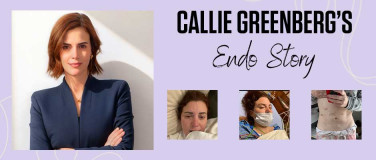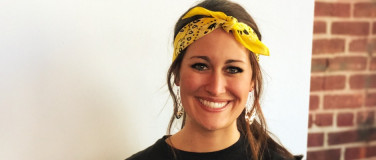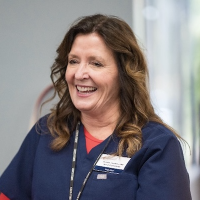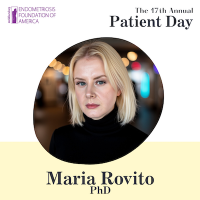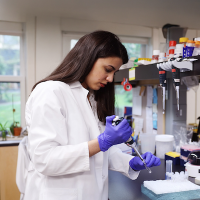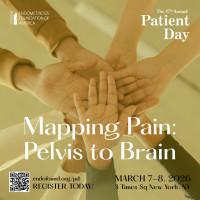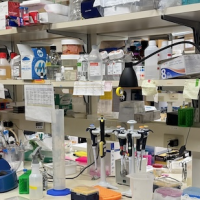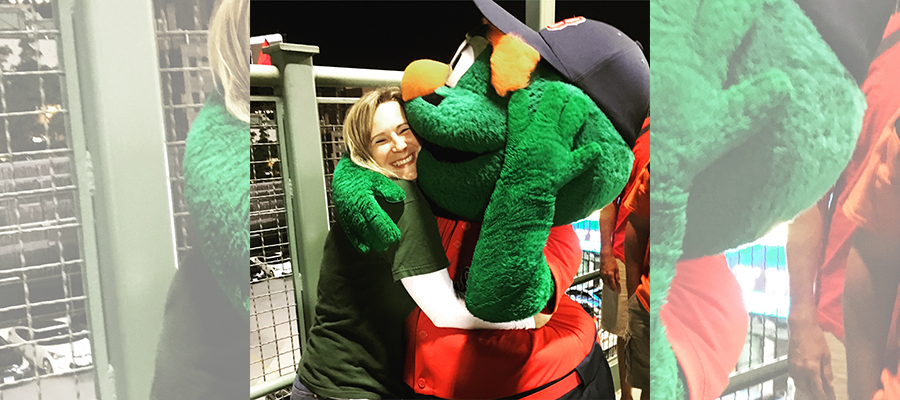
I’ve had a hysterectomy to cure adenomyosis, four laparoscopic excision surgeries to treat my endometriosis, and an appendectomy. Having dealt with a battery of issues with my sexual organs, I rarely look back—it’s too painful. In some ways, I’m angry at myself for waiting so long to have my first surgery, to accept care that I didn’t feel was right, and for not standing up for myself sooner.
If you take anything from this writing, please let it be this: you are heard, you are believed, and you deserve better.
My journey with endometriosis started when I was 15, a sophomore, and I was late to start my period. When I finally got it, on Christmas day, no less, my mother told me tampons were improper if I wanted to preserve myself for marriage.
“If you leave them in for too long, you will die!” she insisted. Then she handed me her huge box of hospital-grade pads and walked away.
No joke.
Thank goodness for my neighborhood best friend. She gave me tampons, and I taught myself how to use them by reading the instructions on the box.
The following month, I had horrible pain that was exacerbated when I laid flat. So, rather than sleep in bed, I slept at an incline on the stairs. After three long and horrific month of this unrelenting pain, which included vomiting, my mother finally agreed to take me to the doctor. I had never complained about pain prior. My tolerance level was high. Ultimately, that was probably a detriment, as it took so long for me to be properly treated.
The doctor, a general physician, did a rather clumsy physical exam and ordered a series of blood work. He also ordered a CT scan. After receiving the results, he told me I had ovarian cancer at 16 and needed to see an OBGYN oncologist as soon as possible. The OBGYN oncologist reviewed my results and determined that my CA-125 (which measures cancer antigen 125 in the blood) was extremely elevated, my general physician not knowing hormonal-driven endometriosis would cause that. He also couldn’t recognize the difference between a mass and an endometria cyst, better known as a chocolate cyst, on my left ovary, which had ruptured. The OBGYN recommended to my mother that I have surgery to see what was going on.
She refused.
My mother is not a caring woman. She is not the definition of what you would picture a mother to be, and she did not want to care for me post-surgery. I would not have my first laparoscopy until I was 27.
I was put on birth control to “manage the issue” and became the guru of home remedies to get me through the next decade. My heating pad, Aleve, baths, Vicodin, and bed would become my lifelines through the rest of high school and college. My fatigue and immaturity had me believing that nothing could be done, so I fought through the pain and kept it quiet. I felt like nobody would understand, and this was solely my burden to bear.
That is one of the worst parts about having endometriosis—trying to make people understand the pain we feel. I once asked a boyfriend to imagine that my arm had a huge wound and he’s telling me to just put a Band-Aid on it. It doesn’t solve anything. The problem still exists. I’m still in pain.
When I was in college and able to make my own medical decisions, I received endometrial ablations, but they only made the pain worse. I was now in severe pain four or five days a week and frustrated by the failed treatments and lack of control over my body. I refused to let anyone examine me anymore. I didn’t trust that anyone could help me. I would be in denial for the next four years.
When my body finally convinced me that I had to do something, I went to my family doctor and explained that my symptoms felt like when I had my 36 cysts in the past. She dismissed me. Over the next ten weeks, I went through a colonoscopy, endoscopy, CT scan, and MRI, losing 30 pounds in the process while still dealing with intense daily pain. It was not until the MRI that they discovered a 10cm cyst had wrapped around and contorted my intestines. When I finally saw the referred OBGYN, the cyst had already ruptured. I was finally diagnosed with PCOS, chocolate cysts, and endometriosis.
I would have three laparoscopies in the next four years to remove the pain from my life. Of course, with each surgery I’d gain 10 pounds, pain that would eventually return, and loss of an ovary, fallopian tube, and portions of my cervix. After my OBGYN moved away, the new one read my text-book-sized file and offered me three treatment options to stop the pain: get pregnant, go on birth control, or get a hysterectomy. I asked for a renewal of birth control and, furious, I never saw this doctor again.
This poor treatment left me distraught but would lead me to two of the best doctors.
The first I found through a Google search of my symptoms and through published medical studies he conducted. I emailed the doctor directly looking for guidance. He listened to my story—the first doctor to ever do that. He made a profound impact on my life, my health, and the way I managed my care moving forward. He was willing to try new ideas and was not opposed to alternative supplements or techniques to find my relief. I will forever be grateful for his extraordinary care, and he changed my views on how doctors should interact with women.
The second doctor convinced me that I should no longer be in pain and diagnosed me with adenomyosis along with all my other conditions. He did this by listening to my health history, not doing a painful examination, and taking me at my word. This was important because my previous hospitals did not save my medical records. The only proof of my past was my scars.
When I woke up from surgery for the adenomyosis, the doctor said: “I’m so sorry. When you said your left side was bad, I didn’t understand the depth of your pain. I was able to see it, our bodies always leave a mark.”
I cried.
“Thank you!” I said. “Thank you for believing me!”
No two health journeys are the same, but for those of us with endometriosis, adenomyosis, PCOS, and pre-cancerous cells, we all have the common thread of being dismissed. No one trains us how to work with doctors, convey our pain properly, or stand up for ourselves when no one is willing to listen.
If you take anything from this entry, please let it be this: you are heard, you are believed, and you deserve better.
Editor's note: Would you like to contribute to EndoStories? Click here to learn how to submit your work.
*Patient stories submitted to EndoFound.org are the patient's views, not necessarily those of the foundation. All testimonials are from real patients, may not reflect the typical patient’s experience, and are not intended to represent or guarantee that anyone will achieve the same or similar results.



